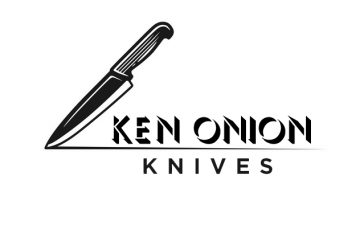
When you are choosing a knife, it is important to consider function as well as aesthetics. A serrated edge is often more threatening and menacing, so it can be helpful for intimidation in the wilderness or in battle.
A serrated blade also works better when cutting hard materials requiring good bite in order to slice through them easily. However, it may not be ideal on soft materials that tend to catch too easily, ripping the material rather than actually cutting it.
1. For Rope or Twine
A serrated blade is a great tool for cutting rope and twine. It makes it easier to cut through a material because its edges “bite” into the surface and provide constant pressure while you’re slicing.
This is especially true for hard materials like rope, wood or tree branches. With a plain edge, it would take you forever to cut through these items.
Personal preference and what tasks you need the knife for are the two main considerations when it comes to picking an edge type. If you’re a hiker, climber, mariner or a chef and need something that can handle tough work, then a serrated blade is the way to go.
2. For Slick or Slippery Meat
If you’ve ever cut up some slick or slippery meat, you know that it can be hard to saw through if you don’t have a serrated blade. Having a serrated knife can make slicing it much easier and result in cleaner slices that look nicer than mushy cuts.
Many knives are available with different types of blades, including straight, serrated, and partially serrated. These blades vary in strength and effectiveness, but all provide their own set of benefits.
3. For Woody Stems
When it comes to cutting woody stems like flower heads, a serrated blade is the way to go. Unlike plain edged knives that will sometimes catch on the material and unwind or unravel it, serrated edges are designed to cut through it with ease.
The most important decision in picking a pocket knife is choosing the right blade edge. It’s all about personal preference and what tasks you need the knife for, as well as what kind of material you’ll be cutting.
For everyday carry, a plain edge works best if you don’t plan on doing much tough cutting. If you’re into adventure and survival, or a mariner, hiker or climber, then a serrated edge would be a better fit.
4. For Seatbelts or Backpack Straps
Serrated blades work great on hard materials, like seatbelts and backpack straps. They’ll slice through rope or tough fabric incredibly quickly, even when wet.
However, on soft materials such as carpet, they don’t cut so well. In these cases, we’d rather stick with a regular straight edge knife for everyday carry.
If you want a reliable everyday carry blade for this specific purpose, the Gerber EVO 3S is a good choice. Its 3.43 in titanium-dioxide coated combo blade can cut through cord, rope, and seatbelts with ease, plus the knife’s flip-out tool components offer a flathead screwdriver, hex wrench, and wire stripper.
5. For Other Tough Materials
A serrated edge makes it easier to cut through materials like rope or wood that have slippery surfaces and are hard to apply steady pressure. It also helps you keep your cutting momentum going once the teeth “bite” into the material.
Other tough materials, such as a piece of heavy fabric or foliage, can also be difficult to cut through with a plain edge knife. The serrated edge’s mini edges can get caught in these slippery surfaces and help you cut through them more easily. The serrations also make it less likely that the knife will slip and cause injury to yourself or others. For this reason, a serrated blade is an excellent choice for hikers, climbers and mariners. Alternatively, you can choose a knife with a combination edge, which features both types of serrations on one edge.
